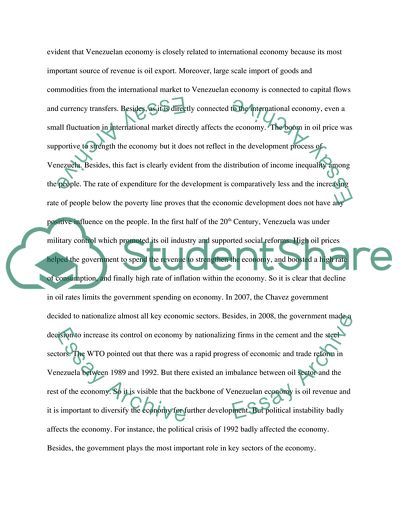Cite this document
(“Economy in Venezuela Shaped by Politics Research Paper”, n.d.)
Economy in Venezuela Shaped by Politics Research Paper. Retrieved from https://studentshare.org/macro-microeconomics/1722714-economy-in-venezuela-shaped-by-politics
Economy in Venezuela Shaped by Politics Research Paper. Retrieved from https://studentshare.org/macro-microeconomics/1722714-economy-in-venezuela-shaped-by-politics
(Economy in Venezuela Shaped by Politics Research Paper)
Economy in Venezuela Shaped by Politics Research Paper. https://studentshare.org/macro-microeconomics/1722714-economy-in-venezuela-shaped-by-politics.
Economy in Venezuela Shaped by Politics Research Paper. https://studentshare.org/macro-microeconomics/1722714-economy-in-venezuela-shaped-by-politics.
“Economy in Venezuela Shaped by Politics Research Paper”, n.d. https://studentshare.org/macro-microeconomics/1722714-economy-in-venezuela-shaped-by-politics.


